Interview With Paul Schrader, Writer & Director Of FIRST REFORMED
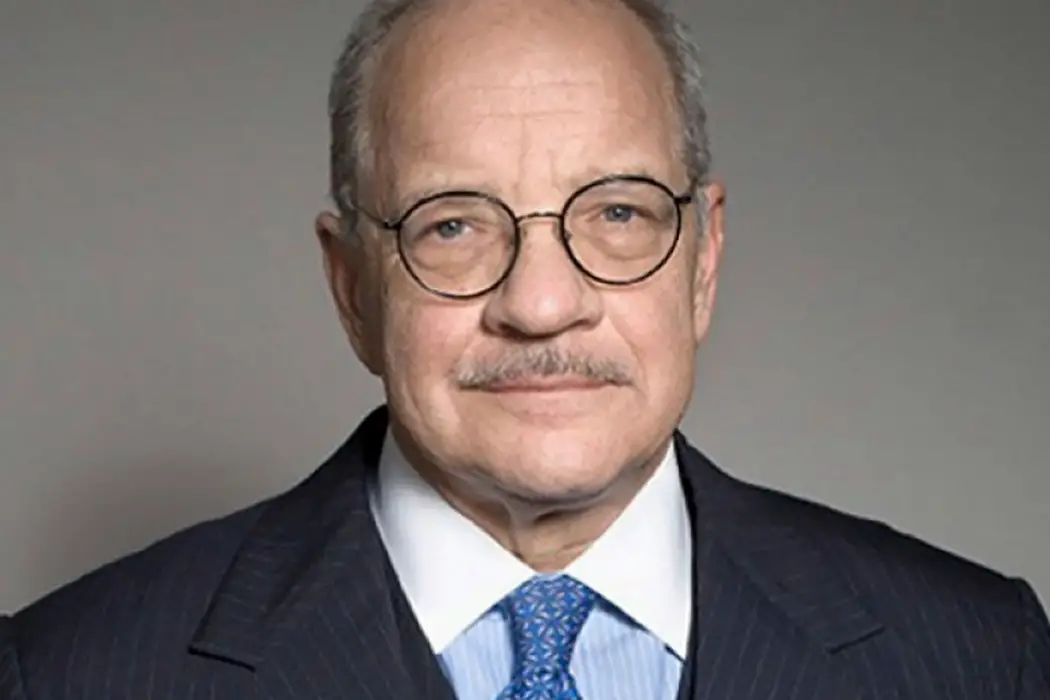
Alex Arabian is a freelance film journalist and filmmaker. His…
He’s one of the most talented and legendary filmmakers in the history of Hollywood. His name is synonymous with the Movie Brat generation alongside artists such as Steven Spielberg, Martin Scorsese, Francis Ford Coppola, and Brian De Palma. Paul Schrader has turned heads in the film industry with his screenwriting chops, penning three of American cinema’s finest films, the Martin Scorsese-directed Taxi Driver, Raging Bull, and The Last Temptation of Christ.
However, Schrader is equally artistically formidable from behind the camera as well, helming such films as Cat People, American Gigolo, Mishima: A Life in Four Chapters, Patty Hearst, and Affliction. His most recent film, which he wrote and directed, is titled First Reformed. About a grieving military chaplain who forms an unconventional friendship with a churchgoer, First Reformed stars Ethan Hawke, Amanda Seyfried, and Cedric the Entertainer.
At the 2018 San Francisco International Film Festival, I had an opportunity to sit down and speak with Schrader about his new film. In person, Schrader is as thoughtful, contemplative, and articulate as his scripts would lead one to believe. During our interview, we talked about the making of First Reformed, its aesthetic and thematic similarities to Taxi Driver, his experience entering the industry during the Movie Brat generation, whether he’s more partial to directing or writing, what projects he has on the horizon, and more. It appears the veteran filmmaker has no plans to slow down any time soon.
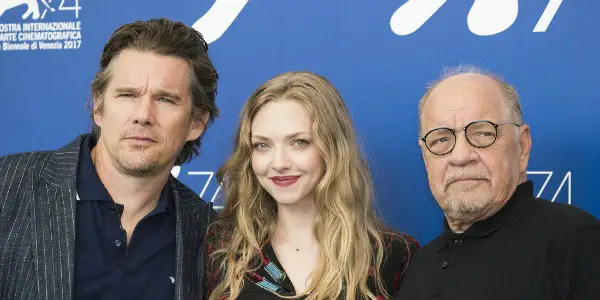
How are you doing this morning?
Paul Schrader: I’m alright.
Congratulations on an amazing film, First Reformed.
Paul Schrader: When did you see it?
I saw it on Wednesday.
Paul Schrader: And on your computer or, or at a screening?
On the big screen.
Paul Schrader: Great.
Yeah. I think that’s how it should be seen.
Paul Schrader: Well, I don’t necessarily agree with that anymore. It’s an ought to be, but it’s more important that it been seen, period.
Right. In a Q&A at Rotterdam Film Festival this year, you noted that, while editing First Reformed, you noticed many similarities to Taxi Driver. In a sense this is an update of that film.
Paul Schrader: Yeah, it’s an update of a number of films. Yeah. Actually, Taxi Driver was probably the last film that got thrown into the stew. A number of other films were thrown in first. And then I really wasn’t aware of how much of Taxi Driver I was throwing in. I was much more aware of how much of the other films I was throwing in.
Can you expound a bit about what you noticed in the editing room?
Paul Schrader: Well, the editor [Benjamin Rodriguez Jr.] just said to me, “You know there’s a lot of Taxi Driver in this film.” And I said, “Yeah. I knew there was some, but I didn’t think there was this much.” And that really just came into the obsessive momentum of it. I thought when I was making it that it was going to be slower and more contemplative.
I intentionally made it slow and contemplative, but that Travis Bickle engine that was rumbling underneath it the whole time all of the sudden starts keeping it going. Yeah. I set out to make a slow film. You know what slow cinema is, yeah?
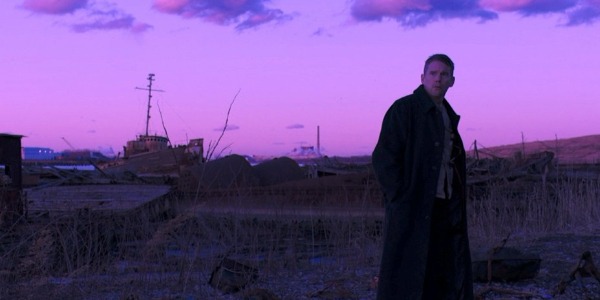
Sure.
Paul Schrader: And I’ve now seen it many times with audiences and no one agrees with me that it’s a slow film [laughter].
I definitely saw it that way. It’s a slow burner of a film. First Reformed is at once a culmination of the fears of today’s world, incorporating subtexts of global warming and the sociopolitical climate of today, and an anxious millennial anthem. Would you consider it more of a religious or political film?
Paul Schrader: I would consider it more religious, and I’m not at all sure how much of an environmentalist Reverend Toller is. He’s in a deep spiritual crisis and he’s looking for an end. One year I’ll write this journal. You know, the liturgy, the clothes, the prayer, all of these, the drinking. And then he meets this boy, and he catches the virus. And all of his self-sacrificing pathology now gets wrapped in the sanctimonious ropes of environmentalism, and he can go down as a justified martyr as opposed to going down as an unjustified martyr. So maybe he – I’m not sure how much he believes.
But that said, there’s been an argument going on among homo sapiens for around 20,000 years which is – “Why are we here? Where are we going? What’s our purpose?” – that until recently has been all hypothetical arguments. There was no answer because there needn’t be no answer. Now it’s all of a sudden not so hypothetical; we may not be here 100 years from now and why were we here in the first place? So it lends a kind of urgency to an age-old, philosophical question.
I noticed that some of the symbolism reflected the novel One Eye Open and One Eye Closed. I don’t know if you’ve ever heard of that book.
Paul Schrader: No.
It’s about a preacher’s wife who lived in silent depression and learned survival skills by being emotionally isolated while sitting in church. It’s an interesting novel. I would definitely recommend it.
Paul Schrader: Yeah. I’m usually aware of such things. So, you caught me with something I’ve never heard of.
Essentially, the preacher’s wife, the main character, discovered the four keys to life: love god, love your family, love your church, and love people. And it was very interesting; there was a shot when Amanda Seyfried and Ethan Hawke are sitting on the couch in their house. Hawke is sitting below a figure of an eye, right? And that’s literal, but that got me thinking about the novel and thematically how similar it is to First Reformed.
Paul Schrader: Yeah. Well, the more prosaic explanation is that I was stripping these rooms clean of decor, but basically, if it moves, take it off. And so these people, they don’t have carpets. They don’t have anything on the wall. They have nothing on table. And so, the sense of the sparseness, the withholding. But I was saying to the production designer [Grace Yun], “When you strip everything away, there is room for one idiosyncratic object which makes the eye move and which they wouldn’t notice if there were a lot of other stuff in the room. But since there’s nothing there, just this one object, that creates a mystery, and it keeps the scene vibrating.”
And I said, “I think that object in this scene will be a lamp.” And she came back the next day with some sketches of lamps, and one was the eye. I said, “That’s great. Let’s get that…Well, where do we get it?” She said, “Well, we don’t get it. I drew that.” I said, “Well, then we have to build it.” [laughs]
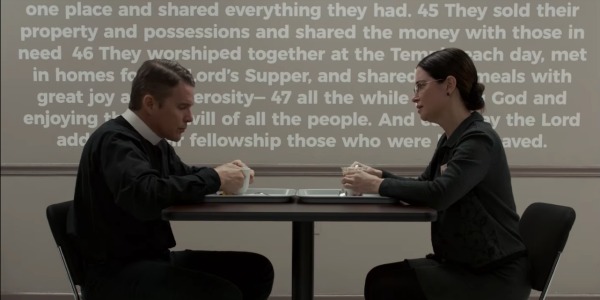
If you can’t buy it, build it. Ethan Hawke delivers a highlight reel performance in First Reformed. You’ve worked with non-actors as well as some of the best actors in the industry. You envisioned Ethan early on in the process – I think you had crossed paths at the New York Film Critics Circle dinner while he was promoting Boyhood when he entered your radar.
Paul Schrader: Yeah, yeah. I met him over the years in New York, and he always struck me as an interesting actor, but never quite right for anything I was doing. But then, when I was writing this I was, I was thinking about – there’s a certain physiological type you need to play these lonely men of the cloth. Something like Country Priest, or Jean Lorrain, or Monty Clift in I Confess.
And that’s when I was thinking about Jake Gyllenhaal, and I was thinking about Oscar Isaac, and I was thinking about Ethan and I said, “You know, Ethan is just right.” He’s got 10 years on those two guys and that 10 years is right now. You know, he’s starting to get those lines in his face that – he was so boyish, so long, and he’s right now. And we were doing interviews together, and he then said, “I don’t know why, but I always felt that, sooner of later, I would do a Paul Schrader film [laughs].” And I didn’t know that until he said it [laughs].
Where does he rank in terms of direct-ability? He’s a storyteller himself.
Paul Schrader: Well, I mean, he’s a renaissance man, to be honest. So, he’s a writer, an actor, a playwright, a director, a musician. So, when you talk with him, you don’t really talk just as a director to an actor, you also talk as a director to a director, and he gets it very quickly.
So, when I first met with him, I said, “You know, this is a lean-back performance as opposed to a lean-in performance. A performance that goes like *this* rather than like *this*.” And he just said, “Say no more. I know exactly what you’re talking about. I know the difference between give me *this kind of performance*, and *this kind of performance* [laughs].”
Let’s talk a little bit about the Movie Brat generation. You’re obviously considered an integral part of this generation, hailing from UCLA. What are some of the most important things that you learned in film school that you’ve carried with you throughout your storied career?
Paul Schrader: Well, I lived in a very fortuitous moment. I came to UCLA in ’68. And studios are collapsing. And there was a sense of panic, and in fact, I recently was given a lot of letters I had written at this time – and it’s right there in all the letters – you know, the studio system is collapsing. They’re looking for people to move in. And so, I don’t know if I would have been able to enter the film business at another time.
Wow.
Paul Schrader: But it was – there was a sort of a panic, and I remember Francis Coppola telling me, “Just go in there and tell them that you know how to make them money, because they’re so scared they’ll believe you [laughs].”
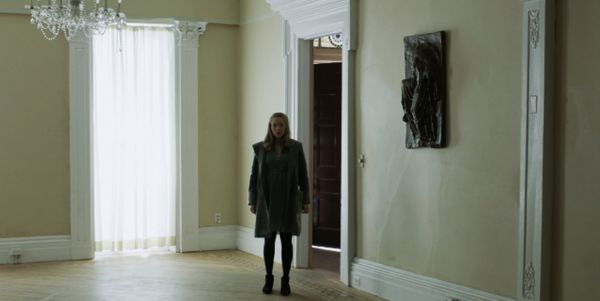
You’ve written some of the most iconic films in cinema history with Taxi Driver, Raging Bull, The Last Temptation Of Christ. Do you consider yourself more of a writer or a director?
Paul Schrader: A little bit of both. The purist lie is as a writer/director, but there are things I do – I directed a script by Harold Pinter. I directed a script by Bret Easton Ellis. And those are other voices, and those are kind of great, collaborative voices, and I don’t want to get Pinter or Ellis out of the movie. But when it comes to a certain kind of movie, this movie about a man in a room, ill and drifting and trying to find a place, I can’t – I mean, Scorsese did a great job on Taxi Driver. I got very, very lucky with that. But I don’t know if other directors would really get that. I hate to write one of those scripts for another director at this point.
How long does it take you do create a writing project from ideation to completion of the script?
Paul Schrader: I’ve been working on a new idea for about a year and a half. I didn’t know what it was until about two months ago [laughs]. It took me about two months to outline it, and now I just started writing, and it’ll take me another two months to write it. But you just bang around for the longest time.
You’re looking for a – particularly now, after First Reformed, I didn’t want to do just something. I mean, because I like this film a lot, I don’t know if it’s going to be my last film, but if it is, it’s a good last film. And that makes you start thinking about, you know, “What should you do after this that is worthy of this one?” And so it’s taken me quite a while, but I finally have come unto something.
Wow, that’s fantastic. So, if you had to sum up First Reformed‘s message, or messages, in a few sentences, what would you say?
Paul Schrader: Well, a work of art is inherently a mystery. It’s a mystery to the person who created it and it should be to person who views it. But you can’t sum it up, because if you could sum it up, it wouldn’t be very good. So, I wouldn’t know how to sum it up. It’s like saying – okay. What happens at the end of this film, First Reformed?
They embrace and they kiss.
Paul Schrader: Is he alive or is he dead?
Well, we don’t know.
Paul Schrader: And I don’t know. I don’t know. I mean, I put enough evidence in there for both. Maybe this is a miraculous appearance. Maybe this an ecstatic vision at the moment of death, you know? Who knows? But so, if you build in mysteries, it’s very hard to sum it up [laughs].
Yeah, yeah. Every great work of art should be like that, open to interpretation.
Paul Schrader: Yeah.
Well, I was going to ask if there are any exciting projects for you on the horizon, but you sort of answered that for me.
Paul Schrader: Yeah. Well, I’m working on this thing. I was going to do something, but I think it’s fallen apart. I wanted to do a remake of Shoot The Piano Player with Justin Timberlake, but I lost Justin, so.
Oh, really?
Paul Schrader: But, maybe that’s for the good. I have this other thing now that’s another real personal one, so [laughs].
Film Inquiry would like to thank Paul Schrader for his time and insight.
First Reformed will be released theatrically in the U.S. on May 18, 2018. For more information on its release, click here.
Does content like this matter to you?
Become a Member and support film journalism. Unlock access to all of Film Inquiry`s great articles. Join a community of like-minded readers who are passionate about cinema - get access to our private members Network, give back to independent filmmakers, and more.
Alex Arabian is a freelance film journalist and filmmaker. His work has been featured in the San Francisco Examiner, The Playlist, Awards Circuit, and Pop Matters. His favorite film is Edward Scissorhands. Check out more of his work on makingacinephile.com!













